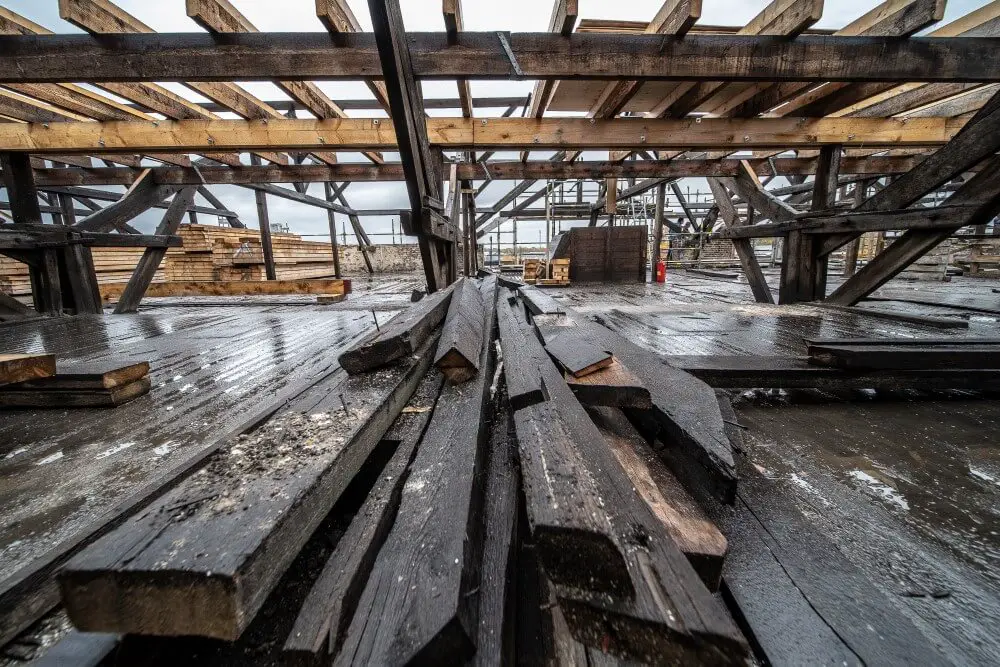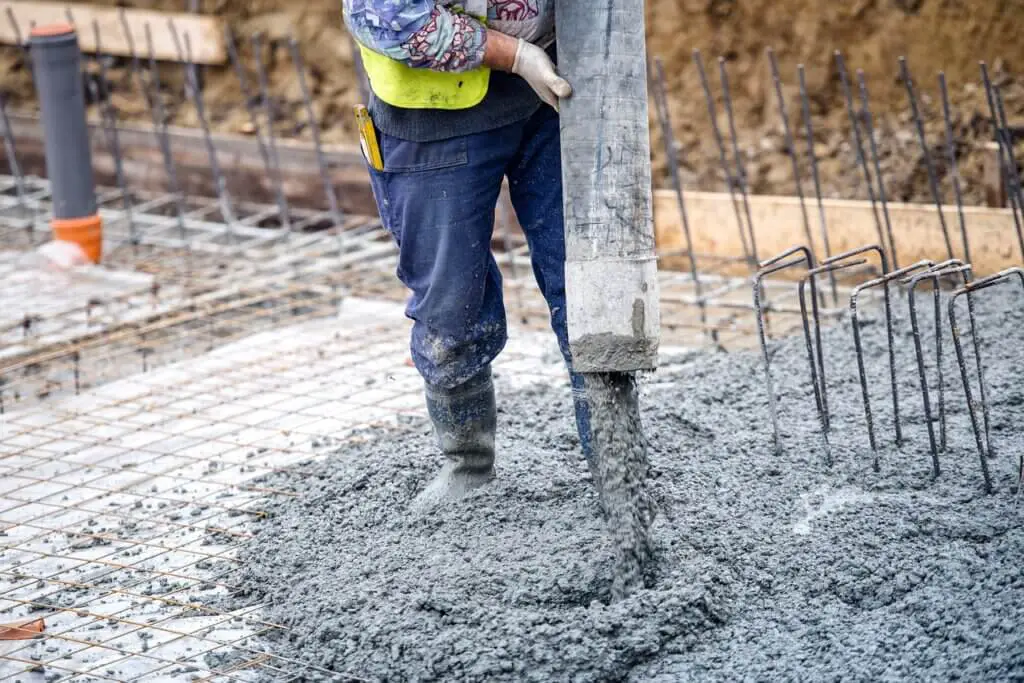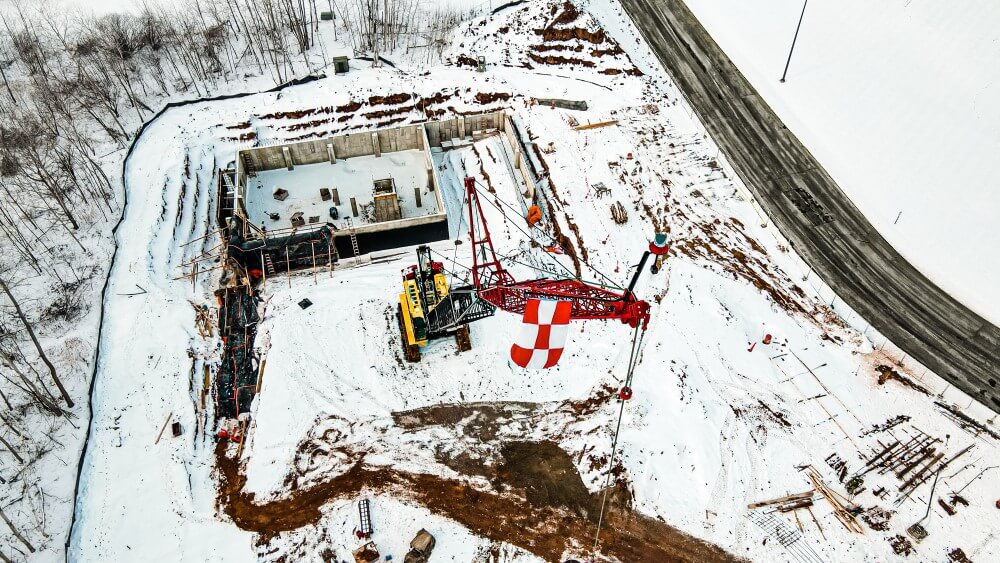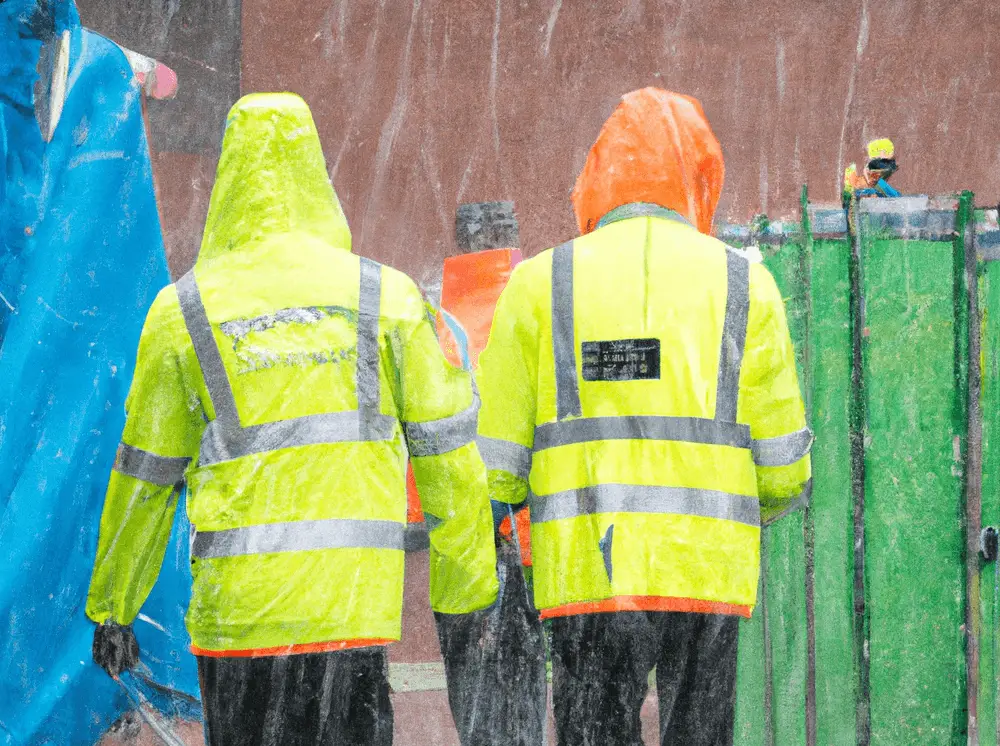Construction workers are tasked with overcoming numerous obstacles when working on projects. Unfortunately, one of the most unavoidable of these is mother nature, or more specifically, inclement weather like rain and snow.
Working in the rain is not just inconvenient for construction workers, it can also be dangerous. That’s why knowing how, when and whether builders can perform their jobs in the rain is of paramount importance.
With this in mind, this guide will answer the question: do construction workers work in the rain?
Put simply, construction workers can and do work in the rain, as construction sites should have enough measures in place to ensure safety. However, rain can cause specific dangers that need to be watched out for, such as slippery surfaces, faulty machinery and electrical hazards. In specific circumstances, excessive amounts of rain may delay or even halt construction work.
Later, we’ll explore how workers keep safe in wet conditions, whether they still get paid if work stops, and what other conditions can cause issues.
But first, let’s explore the question of whether construction workers work in the rain in more detail.
Explore our related articles:
Top 20 White Elephant Construction Projects Around the World10+ Amazing L Shaped Buildings from Around the World
25+ Amazing Facts about Battersea Power Station
What is the Tallest Building We Could Build?
Would it be Possible to Build the Pyramids Today?
Which Current Buildings will Last the Longest?
Top 15+ Longest Buildings in the World
Why is a Building Called a Building if it's Already Built?
Can construction workers work in the rain?
In truth, there is no one answer for whether construction workers work in the rain or not. Although most construction workers do work regularly in the rain, that’s not to say that this is always the case.
It really depends on a variety of factors, such as the amount of rain that has fallen, what the outside temperature is, and what the specifications of the project in question are. These factors have practical implications both for the tools at hand, and the workers using the tools.

For example, in projects involving heavy industry, intense rainfall can jam up equipment like saws and grinders and make them ineffective. Even getting around the site can be made harder and less safe with rain, as it makes surfaces slippery and unstable.
Whereas, builders working in cold temperatures may become ill as a result of cold stress, or other cold-related ailments that are exacerbated by being wet. This is particularly the case in colder climates where protective clothing is not adequately supplied.
It is almost always site management that will make a judgement call as to whether rain levels have passed the threshold of safety to danger. Here, if there is any indoor work to be completed, then this is sometimes swapped for the outdoor work, so as not to lose any time.
Whatever the case may be, at the point where the conditions present a danger or potential hazard to any of the workers, construction should be shut down. There are a variety of different ways that these dangers might occur, as we outline below.
Why is working in the rain dangerous for construction workers?
There are a number of reasons why working in the rain can be dangerous for construction workers. These range from slippery surfaces and unstable ground to reduced visibility.
Wet conditions also carry particular implications for electrical work, as rain can increase the risk of nasty shocks. This is especially a problem for workers operating near power lines and other pieces of power infrastructure.
Depending on the area where work is being carried out, persistent rain can also have damaging effects on the workers themselves, too. Prolonged exposure to cold weather and rain can cause workers to be more susceptible to illnesses and health risks, such as colds, flus and infections.

How do construction workers stay safe in the rain?
In order to prevent any harm coming to construction workers working in the rain, numerous safety measures are put in place. For example, employers should provide workers with no-slip footwear and additional floodlighting, as well as offering waterproof clothing, such as gloves and coats.
As well as this, it’s important that workers are trained properly on what to do in wet conditions, particularly in terms of which tools may be affected, and which surfaces are to be avoided. This training may also include how to treat someone for injuries associated with electric shocks.
Whatever the case, a work suspension plan should be in place, should the rain become too extreme to guarantee safety.
Do construction workers work in the snow?
The answer to whether construction workers work in the snow is entirely dependent on the type of construction project in question. In most cases, should there only be a small amount of snowfall, construction work will be able to continue.
However, if the snow began to fall heavily, visibility could be impacted, causing a risk to workers on site. Likewise, if the ground becomes impassable or treacherous, then getting around the site, or even transporting the required materials, could be dangerous.
In such cases, suspension of work would become a real possibility. Here, it is the job of supervisors and management to make sure that everyone is aware of what the threshold is for excessive snow.

Do construction workers still get paid if rain prevents work?
Should rain prevent construction work from continuing, construction workers may often still get paid. Whether or not they do depends on what the employment contract that they signed and the amount of time construction is halted.
Usually, construction companies will have planned for this eventuality, and have specific policies related to weather. This will outline specifically when workers will get paid and when they won’t. Sometimes, they may offer other benefits to workers who are only getting paid for actual hours worked.
For this reason, it is imperative that all construction workers regularly review their employment contracts and check what they are entitled to.
Thanks for reading our guide to whether construction workers can work in the rain. It’s reassuring to know that we can keep on building regardless of what the elements are thrown at us!
For more related news, views and in-depth guides, explore more of our general building articles.
Or, if you’d like more guides to building and architecture vocabulary, take a look at our selection of building wikis, including what the definition of what a kop is.
Last Updated on 16 September 2023 by Michael
